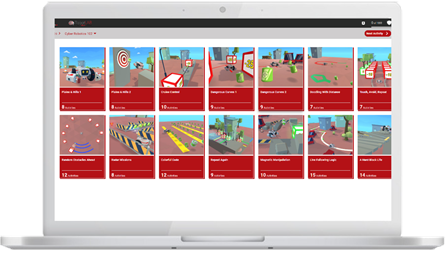Plenty of science fiction authors have asked this question and there are as many answers as there are writers: some have even imagined a future with no classrooms at all, where all children learn from home with a machine as a teacher and consider traditional school an alien concept.
But that particular future is unlikely to come true: as much as AI is growing and studying from home is becoming an increasingly popular solution, education still requires some form of human contact and technology is a tool, not a replacement.
Even so, technology can reshape the design of the classroom and the core philosophies of teaching and learning in significant ways: let’s explore how.

A richer, more connected experience in the classroom of the future
The hottest keyword of future classroom design is the Internet of Things. With 22 billion devices and counting connected to the Internet, a constantly connected life has become an expectation, not a novelty. If the trend keeps up, the classroom of the future will be a smart space where the line between physical and digital is blurred.
With entire interactive walls in place of whiteboards, AI teaching assistants that can sometimes prove indistinguishable from their human counterparts, and virtual and augmented reality as a way to add a digital layer of information to the physical world or even visit new places without leaving the room and, most recently, practice languages with virtual avatars as conversation partners, the classroom of the future is shaping up to be a place where technology is an essential part of the design that provides a smooth, seamless experience, not an afterthought that was added in later and runs into technical difficulties more often than not because of a combination of poor infrastructure and unprepared teachers, as it was in the early days of the transition to EdTech.
With a new generation of students coming in with the expectation of being more connected than ever and a new generation of teachers who are ready to meet that expectation, technology has not yet reached the point of replacing educators, but it is certainly working alongside them to an unprecedented degree.
Your own path to education
Another major difference that EdTech has made possible is the new level of personalisation of each student’s learning path. It is more than just a matter of pursuing one’s own interests: educational technology can gather and track data about student engagement, progress and even movement across the campus and become a constant companion that reminds them of their duties, but also lightens the load by offering helpful suggestions, answering questions and reporting anomalous behaviour patterns that may be a sign of a student at risk of failing or suffering from mental health issues.
Artificial intelligence can also calibrate the material and the manner in which it is presented to each person’s current level in such a way that lessons will always be an interesting challenge, but never an insurmountable one—if a student requires additional help or, on the contrary, is more advanced than average and can handle higher-level instruction, technology-enhanced learning is capable of catering to both ends of the scale.
All the information about your skills and achievements that the increasing presence of EdTech at your school – and later your college campus – has amassed can then become a unified life record that will be more informative to prospective employers than a simple list of course titles: fresh graduates are far more valuable to the job market if they can give a handy summary of what they know and what they can do. We use hashtags for everything by now—why not tag your learning experiences with major keywords such as ‘teamwork’, ‘customer service’, ‘leadership’, ‘problem solving’?
In short, we may yet be far away from a future where the word ‘teacher’ no longer designates a human being, as Isaac Asimov wrote in his 1951 short story The Fun They Had, but the great science fiction author did get one thing right. Little Margie’s words resonate more than ever with modern educators:
‘But my mother says a teacher has to be adjusted to fit the mind of each boy and girl it teaches and that each kid has to be taught differently.’
Keep teaching and learning during COVID-19 with RobotLAB and CoderZ!

CoderZ is an online educational environment that improves students 21st century skills, while they are having fun programming their own virtual cyber robot. CoderZ and RobotLAB has different lessons to do at home! Check them out Here

